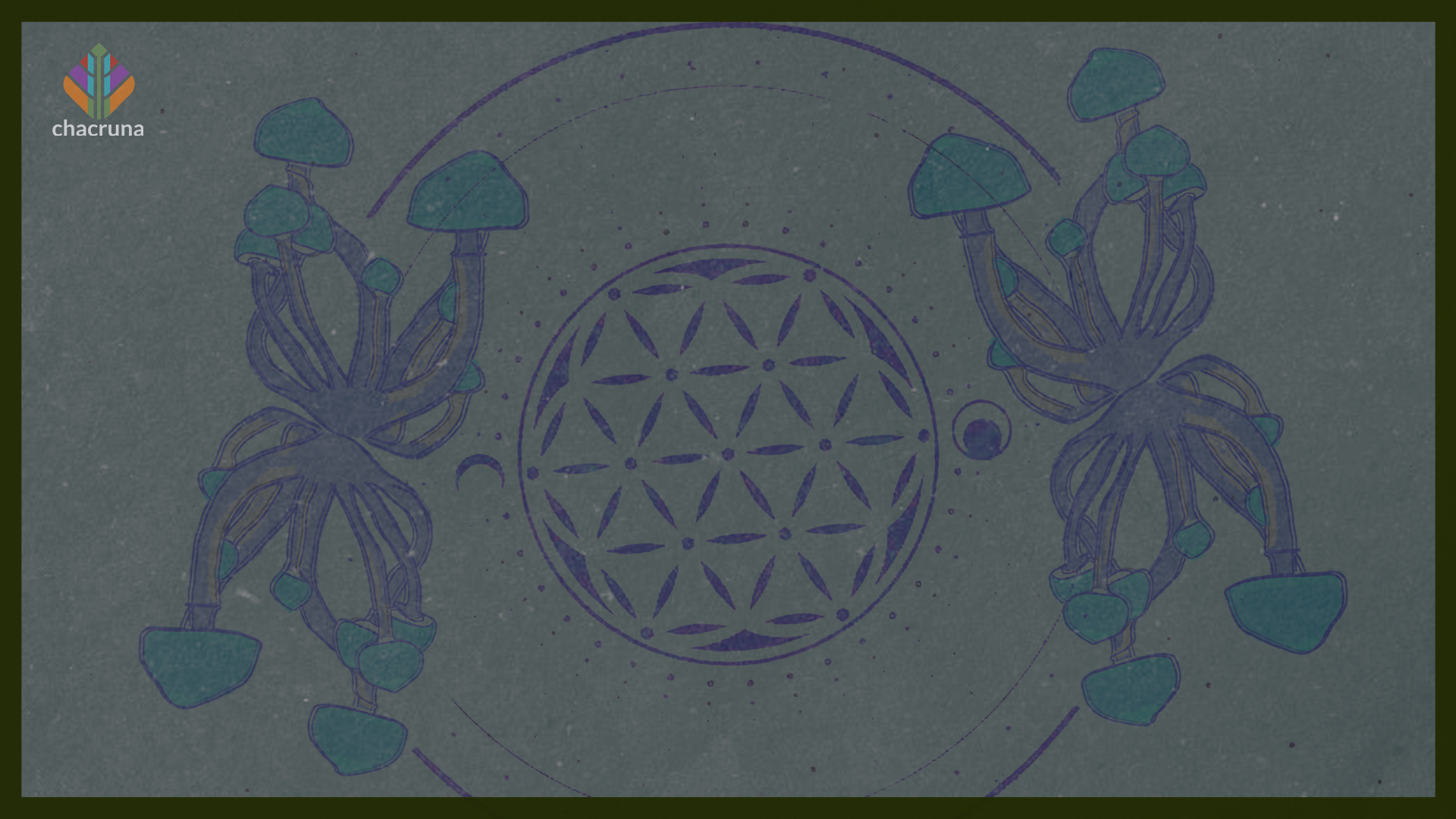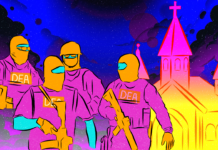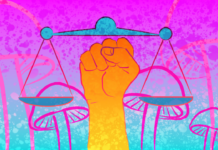- After 2024, the Scenario for Psychedelic Therapies Can Only Improve - January 16, 2025
- Symposium in Brazil Debates Psychedelics at a Political Crossroads - December 13, 2024
- Conference in Rio Defends Psychedelics in Public Health - December 11, 2024
Psychedelics are currently undergoing a renaissance in psychiatry, with psilocybin at the forefront. However, this important substance is tainted by original sin: Science has never paid off its historical debt to the Mazatec people of Mexico, who preserved this psychoactive substance for posterity.
The call for reparations appears in an article (Gerber et al., 2021) by a multinational team of researchers, including members from Brazil, Eduardo Schenberg, from Phaneros Institute, and Konstantin Gerber, from the Catholic University of São Paulo (PUC), from Mexico, Inti García Flores, of the “Historias y Memorias Mazatecas” archive, from Switzerland, Angela Christina Ruiz, of Letterevolution, and from the US, Ismail Ali and Natalie Lyla Ginsberg, both with the Multidisciplinary Association for Psychedelic Studies (MAPS).
The authors also released a video in English and Spanish to explain their purpose, which can be viewed here.
Psilocybin is found in mushrooms of the genus Psilocybe, including P. cubensis, which occurs in Brazil, and P. semilanceata, from Europe. Previously, these fungi were classified as toxic and dangerous. Their healing virtues were only revealed to Western science in 1957 by banker and amateur mycologist, R. Gordon Wasson (1957), in a story he published in Life magazine about the ritual practices of the Mazatec people. He and his wife, Valentina Pavlovna, traveled to Huautla de Jimenez in Oaxaca, Mexico, and witnessed the Mazatec healer Maria Sabina carrying out rituals with Psilocybe mexicana. Initially, they protected her identity by using the pseudonym Eva Mendez.
The psychoactive principle of psilocybin was isolated, synthesized, and patented by Albert Hofmann—the creator of LSD—in the laboratories of the pharmaceutical company Sandoz in Switzerland.
As discussed in the article, a few years later, the psychoactive principle of psilocybin was isolated, synthesized, and patented by Albert Hofmann—the creator of LSD—in the laboratories of the pharmaceutical company Sandoz in Switzerland. The drug came to be marketed under the brand name Indocybin. The article does not mention the fact, but five years later, Wasson took Hofmann to Huautla, where the chemist supposedly heard directly from Sabina that even synthetic psilocybin contained a “spirit.”
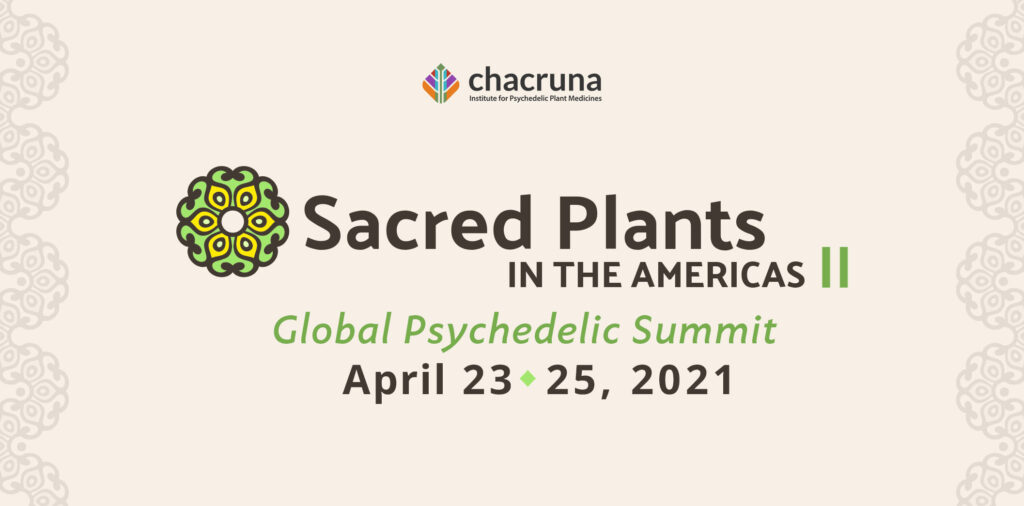
Join us at Sacred Plants in the Americas II
The main drug used in psychedelic research in the 1960s was LSD, not psilocybin. Although LSD guru Timothy Leary had initially tried psilocybin, he abandoned it in favor of acid. It did not take long for the psychedelic movement’s libertarian impulse to unleash a conservative backlash, leading to increasing limitations and, ultimately, a complete ban on LSD usage and research.
There are now dozens of studies completed or underway investigating its potential for treating depression, anxiety, stress, anorexia, migraine, and drug addiction, including tobacco dependency and alcoholism.
Beginning around the year 2000, psychedelic science began to experience a renaissance, gaining wider acceptance with research on psilocybin, a less stigmatized substance than LSD. There are now dozens of studies completed or underway investigating its potential for treating depression, anxiety, stress, anorexia, migraine, and drug addiction, including tobacco dependency and alcoholism. Nonetheless, psilocybin remains a prohibited drug in Brazil and other countries, although Psilocybe mushrooms are increasingly treated with tolerance or even begin to be decriminalized in some parts of the U.S.
There are also dozens of patent applications related to psilocybin, some pending and others already granted. The article presents a list from the psilocybin patent register maintained by the Psilocybinalpha newsletter. For example, the company Compass Pathways, with a market value of $ 1.5 billion, is currently carrying out clinical trials with psilocybin to treat depression, and has six pending patent requests covering its improved medicinal formulation of the compound.
It seems clear that a multi-billion-dollar market for psychedelic therapies is emerging. The article by Gerber et al. focuses on the lack of provisions for recognition, benefit-sharing, or reparations to traditional peoples whose traditional knowledge led to the discovery of such substances. Ayahuasca, a psychoactive plant mixture first used by Indigenous peoples of Brazil and Peru, is another example.
The sharing of benefits from commercial use of traditional knowledge is enshrined in several international treaties, from the Biodiversity Convention (1992) to the Cartagena (2000) and Nagoya (2010) protocols. However, the good intentions outlined in these agreements are rarely put into practice.
This is not a spurious or tenuous claim. The Mazatecs and other Indigenous groups have made spiritual use of magic mushrooms. Scientific studies show a direct link between the degree of therapeutic response and the intensity of the mystical journey triggered by psilocybin and other psychoactive substances, such as ayahuasca. However, debates remain as whether the spiritual component of the experience is necessary to dissolve the rigid mental patterns underlying such disorders (see Leite, 2020). The sharing of benefits from commercial use of traditional knowledge is enshrined in several international treaties, from the Biodiversity Convention (1992) to the Cartagena (2000) and Nagoya (2010) protocols. However, the good intentions outlined in these agreements are rarely put into practice.
Ismail Ali, from MAPS, considers that current intellectual property (IP) mechanisms are ill-suited for compensating collectivities, such as Indigenous communities, for their knowledge.
Ismail Ali, from MAPS, considers that current intellectual property (IP) mechanisms are ill-suited for compensating collectivities, such as Indigenous communities, for their knowledge. “We will have to innovate—in dialogue with said communities—toward that goal,” he says. “For now, companies commercializing traditional medicine should divert some funds to provide support for Indigenous people; but that is just one step.”
In the meantime, he believes for-profit companies should begin by first acknowledging that they have made use of traditional knowledge, and finding ways to support Indigenous peoples who live nearby. “The next step is to provide support for the political causes of Indigenous people, including structural changes to guarantee their sovereignty, land rights, and access to healthcare.”
Given the pace of the “golden carriage” propelling psychedelic science into the marketplace, it seems naive to expect Mazatecs and other Indigenous peoples to receive just compensation from Compass Pathways
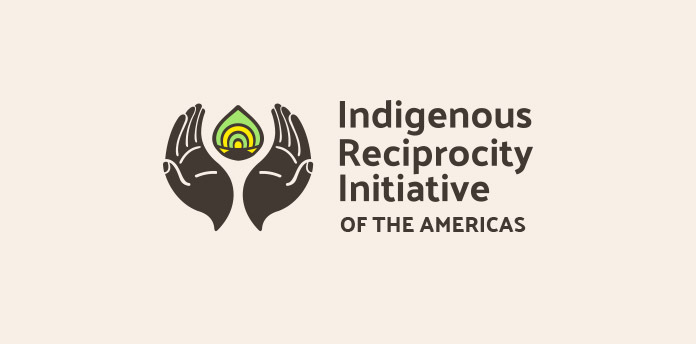
Discover Indigenous Reciprocity Iniciative of the Americas
Given the pace of the “golden carriage” propelling psychedelic science into the marketplace, it seems naive to expect Mazatecs and other Indigenous peoples to receive just compensation from Compass Pathways for the wisdom and technology they acquired from Maria Sabina and her ancestors. And yet, it should be remembered that this branch of research contributed to the counterculture revolution of the 1960s that helped bring current critiques of racism and colonialism to the fore.
The California-based Chacruna Institute has long promoted discussions about cultural appropriation and reciprocity with Indigenous peoples. In 2017, the Institute hosted a conference called Sacred Plants in the Americas, in Ajijc, Mexico, bringing Mazatec leaders into the contemporary psychedelic circuit.
A second edition of the Sacred Plants in the Americas conference is scheduled for April, 2021, and will include the launch of the Indigenous Reciprocity in the Americas initiative, encouraging individual users of psychedelic substances and emerging entrepreneurs to recognize the contributions of Indigenous peoples and exercise reciprocity.
Just as Gordon Wasson’s wife, Valentina, was excluded from the narrative of the psychedelic mainstream, there is little recognition of the role of traditional peoples in the origins of psychedelic science.
Sign up to our Newsletter:
“Unfortunately, Westerners have a generally reductionist view of these issues,” laments Bia Labate, Brazilian anthropologist and Chacruna Director. “Just as Gordon Wasson’s wife, Valentina, was excluded from the narrative of the psychedelic mainstream, there is little recognition of the role of traditional peoples in the origins of psychedelic science. There is also a tendency toward ‘Mazatec-centrism,’ attributing to these people the unique and original knowledge about mushrooms, when there are several other groups who also use them.”
“We need to decolonize our science. Reciprocity is not just about donating money, but also learning how to listen. Moving slowly, creating long-lasting relationships and horizontal projects with mutual collaboration. And sometimes, accepting that Indigenous peoples may not be interested in this relationship.”
Art by Mariom Luna.
References
Gerber, K., García Flores, I., Ruiz, A. C., Ali, I., Ginsberg, N. L., & Eduardo E. Schenberg, E. F. (2021). Ethical concerns about psilocybin intellectual property. ACS Pharmacology and Translational Science, Article ASAP. https://doi.org/10.1021/acsptsci.0c00171
Leite, M. (2020, December 14) Psychedelic science shies away from mysticism without losing its tenderness. Chacruna. https://chacruna.net/psychedelic_science_away_from_mysticism/
Wasson, R. G. (1957, May 13). The secret of divine mushrooms. Life Magazine. http://www.psychedelic-library.org/life.htm
—
Note:
A version of this text first appeared originally in the blog Virada Psicodélica, published in Portuguese by the daily newspaper Folha de S.Paulo. This translation appears with the permission of the publisher.
Take a minute to browse our stock:
Did you enjoy reading this article?
Please support Chacruna's work by donating to us. We are an independent organization and we offer free education and advocacy for psychedelic plant medicines. We are a team of dedicated volunteers!
Can you help Chacruna advance cultural understanding around these substances?


